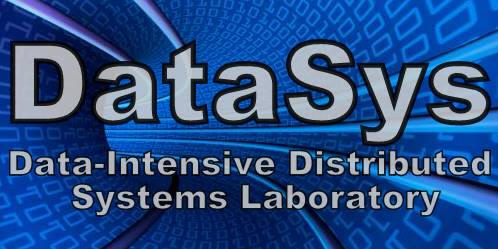 ACM A.M. Turing Award Lecture at
Illinois Tech
ACM A.M. Turing Award Lecture at
Illinois Tech
Jack Dongarra
Professor Emeritus,
University of Tennessee
Appointments with Oak Ridge National Laboratory
&
the University of Manchester
April 12th, 2023 at 12:45PM: Lecture in Hermann Hall Ballroom
1:45PM: Reception in Hermann
Hall’s Gallery Lounge
Register for free at https://tinyurl.com/turing-iit23
Join us for a celebration of an Illinois Tech
alumni, Jack Dongarra, winning the most prestigious award in computing, the
2021 ACM A.M. Turing Award. Jack’s pioneering contributions to numerical
algorithms and libraries that enabled HPC software to keep pace with
exponential hardware improvements for over four decades has, through the years,
accelerated HPC. You won’t want to miss this rare opportunity to hear first-hand
from one of the giants in the field of computing!
About the Award
The ACM A.M. Turing Award was
named for Alan M. Turing, the British mathematician who articulated the
mathematical foundation and limits of computing, and who was a key contributor
to the Allied cryptanalysis of the Enigma cipher during World War II. Since its
inception in 1966, the Turing Award has honored the computer scientists and
engineers who created the systems and underlying theoretical foundations that
have propelled the information technology industry. The award, often referred
to as the “Nobel Prize of Computing,” carries a $1 million prize, with
financial support provided by Google.
A Lifetime of Contributions
While most in our HPC community recognize Jack
as a collaborator in developing the code for the Linpack benchmark and
establishing the TOP500 list, his trailblazing work stretches back to 1979. He
has led the world of HPC through his contributions to efficient numerical
algorithms for linear algebra operations, parallel computing programming
mechanisms, and performance evaluation tools.
For nearly 40 years, Moore’s Law produced
exponential growth in hardware performance. During that same time, while most
software failed to keep pace with these hardware advances, high performance
numerical software did—in large part due to Jack’s algorithms, optimization
techniques, and production-quality software implementations.
 These contributions laid a framework from which scientists and
engineers made important discoveries and game-changing innovations in areas
including big data analytics, healthcare, renewable energy, weather prediction,
genomics, and economics, to name a few. His work also helped facilitate
significant advances in computer architecture and supported innovations in
computer graphics and deep learning.
These contributions laid a framework from which scientists and
engineers made important discoveries and game-changing innovations in areas
including big data analytics, healthcare, renewable energy, weather prediction,
genomics, and economics, to name a few. His work also helped facilitate
significant advances in computer architecture and supported innovations in
computer graphics and deep learning.
Jack’s initial contribution was in creating
open-source software libraries and standards which employ linear algebra as an
intermediate language that can be used by a wide variety of applications. These
libraries have been written for single processors, parallel computers,
multicore nodes, and multiple GPUs per node.
Jack’s
libraries also introduced many important innovations including autotuning,
mixed precision arithmetic, and batch computations.
As a leading ambassador of HPC, Jack led the
field in persuading hardware vendors to optimize these methods, and software
developers to target his open-source libraries in their work. Ultimately, these
efforts resulted in linear algebra-based software libraries achieving nearly
universal adoption for high performance scientific and engineering computation
on machines ranging from laptops to the world’s fastest supercomputers. These
libraries were essential in the growth of the field—allowing progressively more
powerful computers to solve computationally challenging problems.
Jack was also instrumental in developing MPI
(Message-Passing Interface), the portable interface for parallel programming
that allows users to move their code from one HPC system to another. His work
has touched every HPC computer and virtually every HPC application developed
over the last couple of decades. You can learn more about Jack’s award-winning,
pioneering work in the video below from the ACM A.M. Turing Award presentation
as well as in this article from The New York Times.
You can also see the original Turing Award Lecture presented at IEEE/ACM
Supercomputing/SC 2022 conference.
For more information about this lecture, see http://datasys.cs.iit.edu/events/turing-iit23/.
 Data-Intensive Distributed Systems Laboratory
Data-Intensive Distributed Systems Laboratory